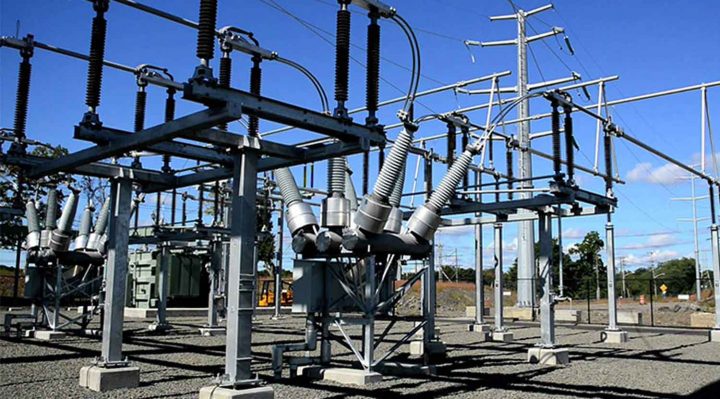Unconfirmed reports have it that the much awaited €63 million mega transformers from Siemens Energy meant to be used to strengthen or improve power supply situation in the country, may have started arriving at the Lagos port.
An industry source said that the first batch of the transformers has arrived, but this could not be confirmed either by the Federal Ministry of Power or Siemens Power Nigeria. But another source told Business Standards that the transformers are expected to have started arriving in the country last weekend.
Denying the rumour that the arrival of the transformers has been delayed by another month, a very close source to the Power Project Initiative (PPI ) of the Federal Government on Saturday told Business Standards that the transformers will start arriving ‘this week’, meaning last weekend, but the source failed to confirm if any of the transformers has actually arrived the country.
The source subsequently gave what looks like an arrival schedule for each batch of the transformers. The first batch which is understood to be consisting two transformers will arrive in September, while other batches would be arriving in October, November, December, January, February, March, April, and the final batch would be in May 2023.
What is not known yet are the capacities of the transformers, but going by the programme of arrival, if two transformers are contained in a batch, as a source said, and one batch arrives in the country every month, starting from this month, it means that Nigeria should be expecting 18 transformers that would probably deliver between 7,000-25,000 megawatts of electricity across the country in the nearest future.
Lagos and Abuja may be the first beneficiaries of the transformers when they eventually begin to arrive.
The Federal Government had stated in July this year that the first set of mega transformers from the €63 million Siemens deal will begin to arrive Nigeria in September.
The Siemens deal which is expected to significantly improve the country’s electricity distribution capacity was approved by the Federal Executive Council in December, 2021.
The Special Adviser, Media, to the Minister of Power, Isa Sanusi, had said in a press statement in July that the transformers have successfully undergone factory acceptance test at Siemens’ transformers factory in Trento Italy.
The transformers were ordered by the Federal Government under President Muhammadu Buhari’s Presidential Power Initiative, PPI.
Also the Managing Director of the Federal Government of Nigeria Power Company (FGN-Power), Kenny Anuwe who led a delegation that included engineers from Transmission Company of Nigeria (TCN) witnessed the factory acceptance test conducted on 28 July 2022.
The factory acceptance test paves the way for Siemens Energy to start delivering the transformers to Nigeria, Sanusi added.
The Minister of Power, Abubakar D. Aliyu had led a delegation to Germany in April, when he visited Siemens Energy factories in Berlin and Frankfurt, and held meetings with the senior leadership of Siemens Energy on the need to fast-track the delivery of the early orders that will kick start the transformation of Nigeria’s electricity.
“The successful factory acceptance test shows Nigeria’s engagement with Siemens Energy is on track. It also shows the Federal Government’s commitment to addressing Nigeria’s electricity challenges,” the Minister said.
In December 2021, the Minister of Finance, Zainab Ahmed and the Minister of Power Engr. Abubakar D. Aliyu secured the approval of the Federal Executive Council for €63 million for the procurement of equipment to boost power supply under the Presidential Power Initiative (PPI) — whose first phase will provide 10 mobile power substations and 10 mega transformers that will be deployed across the country to boost and stabilize electricity supply.
In 2018, President Muhammadu Buhari initiated the Presidential Power Initiative (PPI) that will enable Siemens Energy to upgrade Nigeria’s electricity systems.
The first phase of the PPI seeks to modernise, rehabilitate and expand the national grid by investing in the electricity value chain, including generation, transmission and distribution systems.
The government has severally remarked that its partnership with Siemens in the power sector would expand Nigeria’s electricity capacity from the current 4,500 megawatts (mw) to 25,000mw.
The government assured that the first phase of the PPI under the Siemens deal would ensure increase of electricity supply to 40 million underserved Nigerians.
The project would expand Nigeria’s electricity from the current 4,500MW to 25,000MW.
“The Presidential Power Initiative (PPI) which began in 2021 is in three phases and is estimated to be completed in 2025.
“The phases cover the upgrading and expanding the transmission networks (TN) and Distribution Companies (DisCos) networks; improvement of access to affordable, efficient and reliable electricity and, providing support of industrial and economic growth in the country.
“This first phase which began in 2021 will go on for a period of 10 months with the end goal of pushing to 7,000MW. So far, there has been no hitch as the team is currently in the pre-engineering phase.

